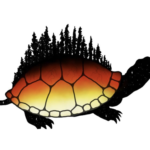The Anishinabek Nation is committed to supporting public education and awareness on the impacts of Indigenous racism. Education tools, made with First Nations, support a culturally-responsive, strength based, and trauma-informed approach that will help all Canadian citizens understand their own obligations to speak up and act. This project is in line with the release of the June 2015 Truth and Reconciliation Commission Final Report in which recommendation 57 calls upon the federal, provincial, and territorial governments to:
- Provide education to public servants on the history of Aboriginal peoples, including the history and legacy of residential schools, the United Nations Declaration on the Rights of Indigenous Peoples, Treaties and Aboriginal rights, Indigenous law, and Aboriginal–Crown relations. This will require skills-based training in intercultural competency, conflict resolution, human rights, and anti-racism. In addition, recommendation 62 calls upon the federal, provincial, and territorial governments, in consultation and collaboration with Survivors, Aboriginal peoples, and educators, to:
- Make age-appropriate curriculum on residential schools, Treaties, and Aboriginal peoples’ historical and contemporary contributions to Canada a mandatory education requirement for Kindergarten to Grade 12 students;
- Provide the necessary funding to post-secondary institutions to educate teachers on how to integrate Indigenous knowledge and teaching methods into classrooms.
The Anishinabek Nation has developed an online module for the public that will build capacity to recognize and act to prevent occurrence of Indigenous racism. Areas for potential expansion include exploring Indigenous identity, racism in the classroom, racism in sports, and engaging in dialogue for all Ontarians to fight racism against Indigenous people.
The target population of the project is public education including Indigenous and non-Indigenous peoples of all ages. The online format is publicly available. This will be a new project that builds on the expertise and curriculum expectations from the Gdoo-Sastamoo Kii Mi Secondary School resource kit.



